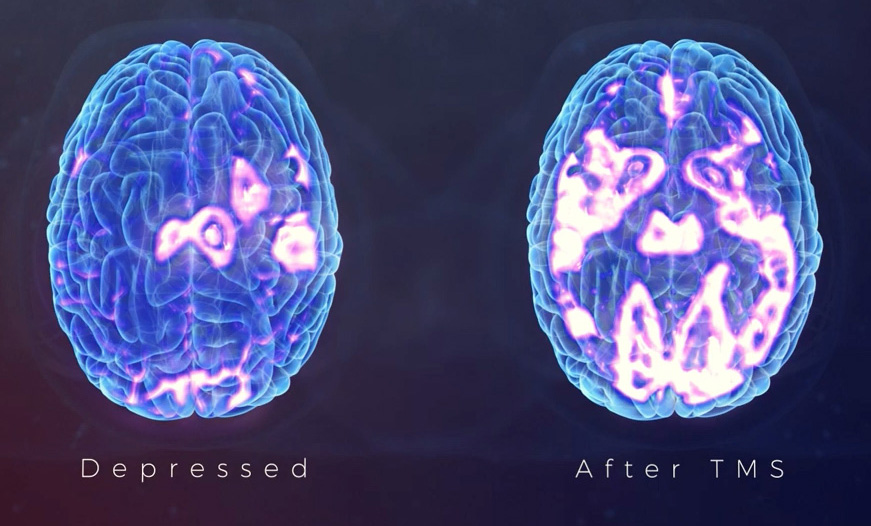BayView Professional Associates provides Telehealth services, connecting you from your device to your provider. To help prepare you for your Telehealth appointment, we have prepared step-by-step instructions to help you have the best experience possible. We highly encourage patients to test devices in advance to ensure timely connectivity on their appointment day.
Click here to access the instructions and print if needed.




 When a nerve cell ‘fires’, an electrical impulse travels along its length. It communicates with other nerve cells by releasing neuro-transmitters, which create an electrical impulse in other cells. In depressed patients, the electrical activity in certain areas of the brain have been shown to be reduced. TMS uses a focused electromagnetic coil, to rapidly pulse a magnetic field to the targeted area of the brain.
When a nerve cell ‘fires’, an electrical impulse travels along its length. It communicates with other nerve cells by releasing neuro-transmitters, which create an electrical impulse in other cells. In depressed patients, the electrical activity in certain areas of the brain have been shown to be reduced. TMS uses a focused electromagnetic coil, to rapidly pulse a magnetic field to the targeted area of the brain.
 EMDR. It is not an acronym that rolls easily off the tongue, nor does the name of the treatment therapy for which it stands: Eye Movement Desensitization and Reprocessing. EMDR is considered “a bestpractices therapy for trauma,” according to John Conrad, assistant director of AltaPointe’s BayView Professional Associates.
EMDR. It is not an acronym that rolls easily off the tongue, nor does the name of the treatment therapy for which it stands: Eye Movement Desensitization and Reprocessing. EMDR is considered “a bestpractices therapy for trauma,” according to John Conrad, assistant director of AltaPointe’s BayView Professional Associates. Successful business owners recognize that everyday life stresses can cause severe damage to on-the-job performance. Studies show that employees trying to cope with distressing personal issues are more likely to be involved in accidents, make imprudent decisions or abuse sick leave.
Successful business owners recognize that everyday life stresses can cause severe damage to on-the-job performance. Studies show that employees trying to cope with distressing personal issues are more likely to be involved in accidents, make imprudent decisions or abuse sick leave. Anyone can have problems from time to time. Individuals or families whose problems persist and negatively affect their quality of life may find answers through confidential and supportive, solution-focused counseling. Thousands of people who live in the Mobile Bay region have sought and found help at BayView Professional Associates, whose offices are located in Mobile and Fairhope, Ala.
Anyone can have problems from time to time. Individuals or families whose problems persist and negatively affect their quality of life may find answers through confidential and supportive, solution-focused counseling. Thousands of people who live in the Mobile Bay region have sought and found help at BayView Professional Associates, whose offices are located in Mobile and Fairhope, Ala.


